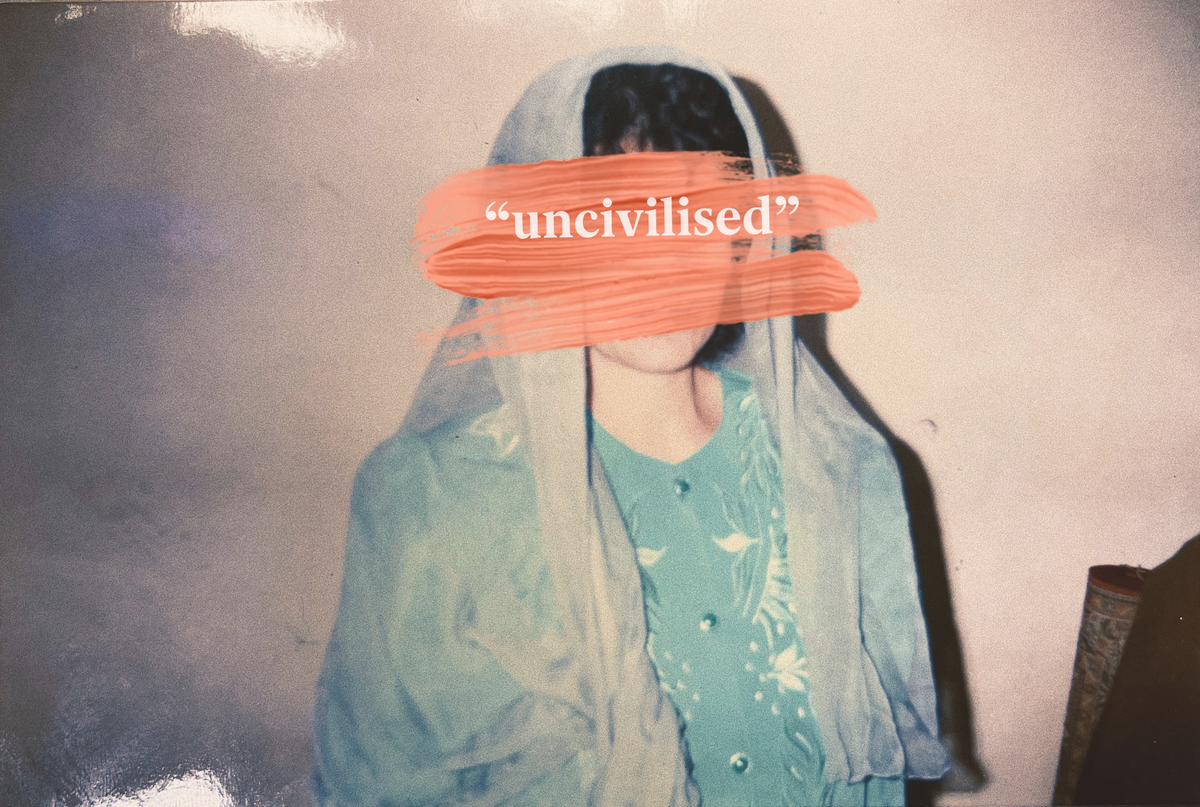The conflict in Ukraine feels all too familiar for many Afghans

Let me tell you about a time when kites would fly high, brushing past valleys and mountains, in a land that many called home. In Afghanistan, there were whispers of peace and prosperity painting the streets with excitement, as the fresh scents of bread and tea and the blissful sounds of music filled the air.
Before the Soviet invasion of Afghanistan in 1979, the country was thriving in culture, history and hidden gems. These gems were stolen when war took sight of the country and blinded many. My homeland was torn apart by outsiders, and unfortunately history keeps repeating itself.
The current conflict in Ukraine is something that resonates with many Afghans. Looking back at the painful memories, I spoke to my mother, a woman of great strength who migrated from country to country in order to give the best possible life for her loved ones.
My mother, like many other mothers living through war, raised children during a time of great difficulty and pain. Her body was used as a blanket of protection for her children, as she shielded my siblings through unbearable moments – moments that should humble us all and inspire empathy for those facing war all over the world.
The world is often desensitised by conflict that is so far from the west. People often label us as “uncivilised” and while reporters continue to spout their racial biases, it’s important to remember that every human life matters, no matter what race or religion.
Many Afghans, just as they do today, lived day in and day out praying that they wouldn’t get killed. One day an announcement was made in Panjshir: “The Russians are going to attack us tomorrow, everyone needs to evacuate.” But the sad reality was, there was nowhere to run.
Most homes had bomb shelters, but my mum, who suffers from severe claustrophobia, hated the feeling of being stuck in a bomb shelter for another day. It was that day that she refused to go into one, she stayed home and prayed for the safety of her loved ones, holding my brother close.
Rockets began to fall, just as raindrops would, but these were deadly and unforgivable. A rocket fell into my mother’s garden and hit a berry tree, missing a large part of the house. My brother, out of fear and panic, ran out of the house and my mother hurried after him.
Peace quickly turned into chaos. My brother, who was five at the time, had his childhood taken away from him. Lullabies slowly turned into the sound of rockets and bombs, and the sound of a child’s laughter turned into tears – Afghanistan’s innocence was taken away.
A high-pitched noise pierced my mothers ears: “I was running around, looking for your brother, screaming and crying.” She shouted: “Where is my son, where is he?!”
My mother told me: “I saw bodies on bodies, the streets were painted with blood, a picture I cannot unsee”. She came across a man, on the brink of death, his legs detached from his body. He was whimpering for help while taking his last breath. Fighting past the smoke and debris, my mother finally reunited with my brother.
In agony, my mother rushed to find her sister. My aunt and her daughters decided to go into the the bomb shelter that day. A moment of safety suddenly vanished in the blink of an eye. A rocket had struck the shelter and underneath the rubble were the bodies of two young children, holding hands as they laid there, frozen, gone. Their mother was injured, in pain and unable to move.
“I saw the bodies, my nieces held hands and they didn’t let go of one another till the very last moment,” my mother told me. This attack was just one of many heartbreaking events that occurred during the Soviet invasion of Afghanistan.
To keep up to speed with all the latest opinions and comment, sign up to our free weekly Voices Dispatches newsletter by clicking here
My family eventually left Afghanistan after the fifth year of the invasion, making their way to Pakistan for eight years. After years of migrating and moving from country to country, my family finally made it to the UK in 1995.
Faiza’s mother and siblings. Afghanistan, date unknown (Faiza Saqib )
“History runs deep in our roots. We cannot forget the pain of our people, forgetting would be a betrayal,” my mother said. It’s true that the moment you forget where you came from, the sacrifices that were made and the hurt that was put on our people, is to betray who we really are.
The war in Ukraine is a far too familiar narrative for many Afghans, an unforgettable memory for many, and that is why the UK must do more to accept refugees who are finding a way out.
We cannot forget the people of Ukraine, Afghanistan, Syria, Yemen and Palestine – the list goes on. Everyone deserves a chance at life, everyone deserves a normal life. The innocent shouldn’t have to pay with their lives.
We must do more and we must stand together to stop this war. Refugees welcome.






